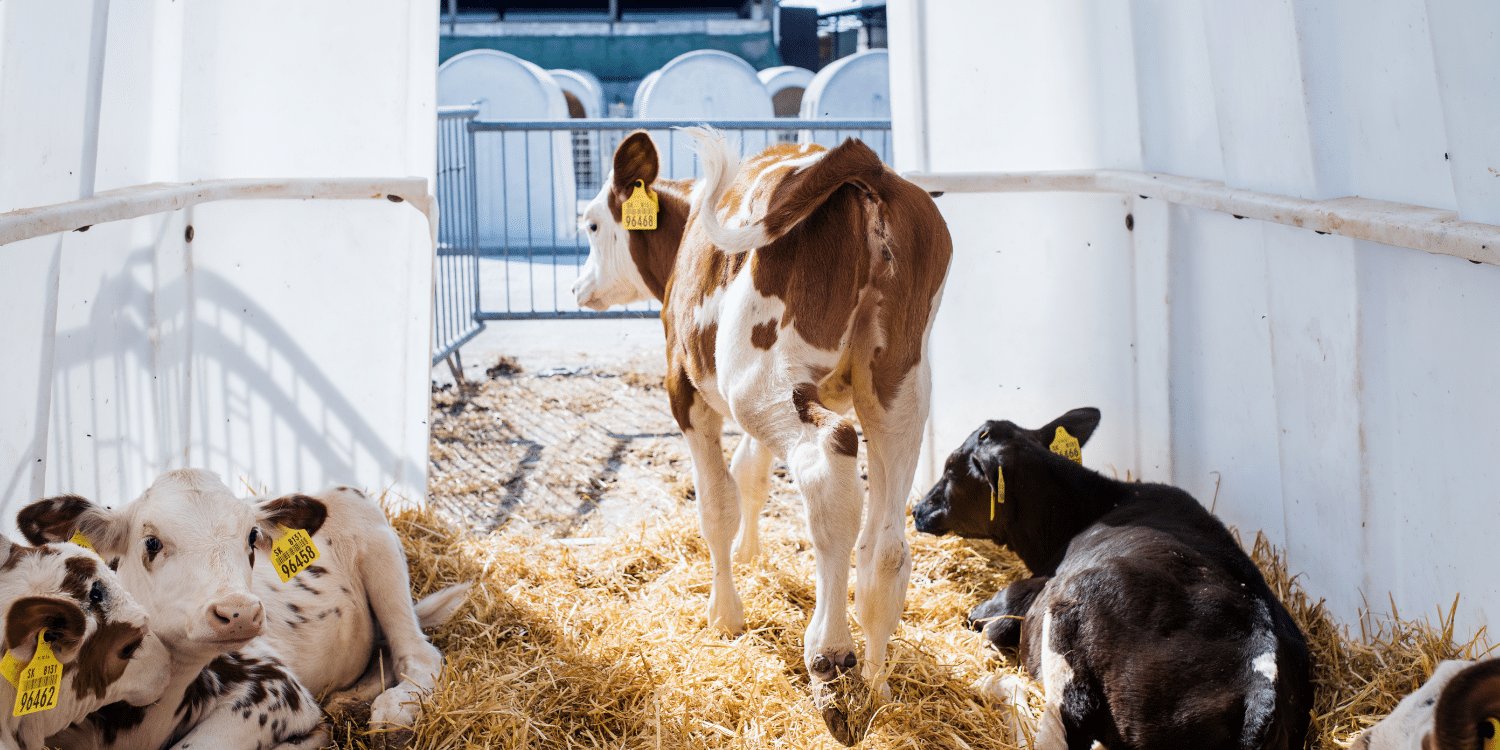Cryptosporidiosis is common in modern dairy farming. The bowel disease causes severe diarrhea and fluid loss. This is life-threatening for young calves. And so dairy farmers are looking for solutions to combat the parasite. Three dairy farmers share their experiences with PrimeHumic humic acids. Does it help to prevent cryptosporidiosis?
Dairy farmer Wim van Helvoort is proud of his calves. “We pay a lot of attention to genetics and breeding and we have really beautiful calves,” he says. Unfortunately, good genetics can’t keep cryptosporidiosis out. The dairy farmer’s calves regularly suffered from the parasite. First he used Halocur. “Which worked for a while, and everything seemed well enough, but inevitably it would return. So it isn’t particularly effective as a permanent solution. And for ten euros per calf, it is very expensive,” he concludes. “What’s more, as a farmer it’s devastating to see beautiful calves die. Once their diarrhea gets bad, there’s basically no cure anymore. You’re going to try everything you can to prevent that.” And so he put his efforts into finding an alternative.
Diarrhea disappeared
Eventually he came into contact with PrimeHumic at a fair. He was given a liter to try. “You only have to mix 20 ml per calf per day into the milk, so a liter will go a long way. It’s not expensive, but the most important thing is: it works really well. We’ve been using it for 6 months now and our calves haven’t had diarrhea since. No diarrhea caused by crypto, but no other types of diarrhea anymore either.”
With Wim, the calves get PrimeHumic humic acids through the milk as soon as possible after birth, until day 14. “At around day 10, the calves are at their most vulnerable. Their mother’s antibodies are largely depleted by then and they have to start making their own antibodies.” And so he gives them PrimeHumic for a few more days.
Word-of-mouth
Wim is so satisfied with the product that he has started reselling bottles of PrimeHumic to other farmers. “Word-of-mouth often works best,” he notes. According to Wim, other dairy farmers who want to use the product should take two things into account: “Don’t give the calves too much. Just adding a splash can already be overdoing it, and I don’t think that’s good for the calves. It’s also important to have other things in order as well: clean, dry bedding is essential. The hygiene has to be good. For crypto, we always use an expensive disinfectant, but I must say I haven’t used that for months. But of course we do clean the pens well regardless.”
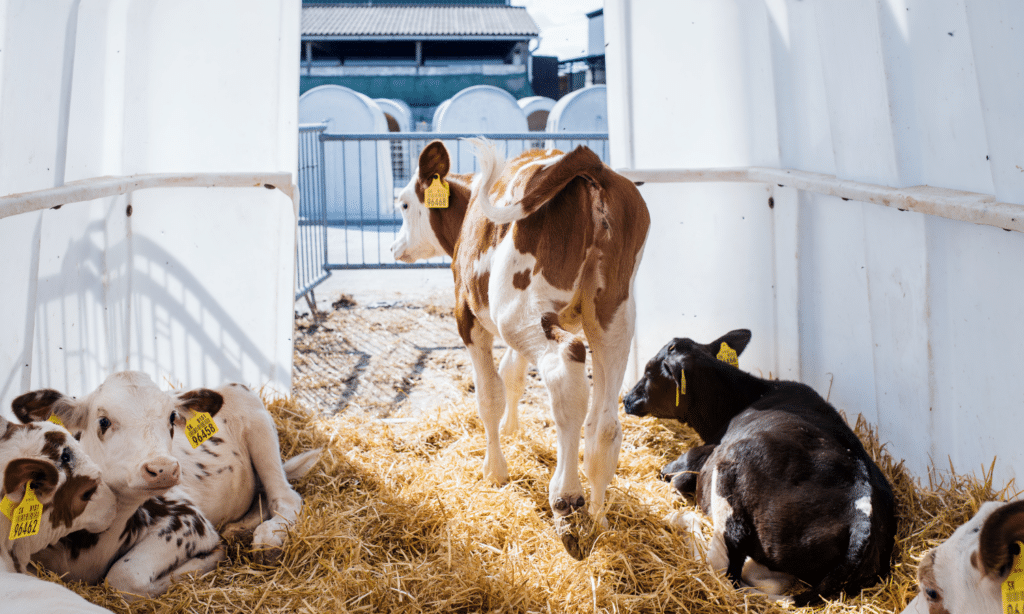
Young cattle
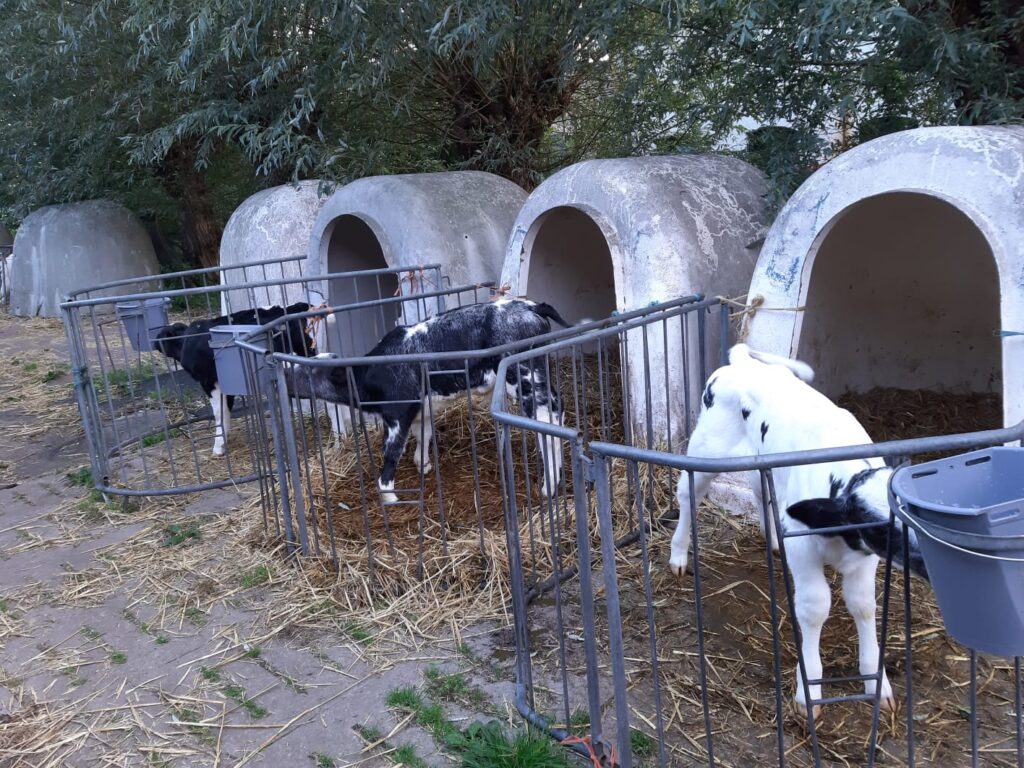
Dairy farmer Amel de Jong
Immediate results
Amel de Jong also recently started using PrimeHumic with his calves. Together with his parents and brother he runs a dairy farm in Streefkerk, with 140 cows and 25 to 30 young cattle up to six months old. “We outsource the older young cattle,” says Amel. Through a study club evening he heard about the humic acids from PrimeHumic. “I was especially curious about the product with our calves. What does it do against cypto?” At first Amel used PrimeHumic from the moment the manure changes composition, usually around day 6, for up to 10 days. “We saw immediate results, the calves didn’t sink into the litter as deep,” Amel remarks.
Also for E.coli
This way of working was fine in itself. But after consultation he decided to use the product sooner: from day 1 after birth. “Our calves also suffered from E.coli the first days after birth. Since we started using PrimeHumic from day 1, we have had a good 10 calves and we have had no problems at all with E.coli. I really believe in the product. You do not hear many dairy farmers about it yet, but I am enthusiastic about it. Not only that it work so well, but also how it actually works. It unquestionably supports the intestinal health of the animals.”
More work pleasure
Financially, the addition of PrimeHumic humic acids is quite affordable, according to Amel. “It saves calves, misery and time. And I’m also a little less worried about hygiene. Of course, good hygiene in the stables is important. But even if you keep scrubbing and polishing you can still get bacteria. Now that we are using PrimeHumic, I know that the animals are as fit as can be. All in all, it adds to the joy we find in our work. My mother, who mostly takes care of the calves, just said the other day that she likes spending time with them better.”
Tried all kinds of remedies
Dairy farmer Johan de Groot was also looking for a solution for crypto in his calves. “I had already tried all sorts of miracle remedies, from acids to garlic. But nothing works as well as what we use now: PrimeHumic humic acids. We were given the chance to test the product first on a no cure, no pay basis: if we didn’t like it, we wouldn’t lose a cent.”
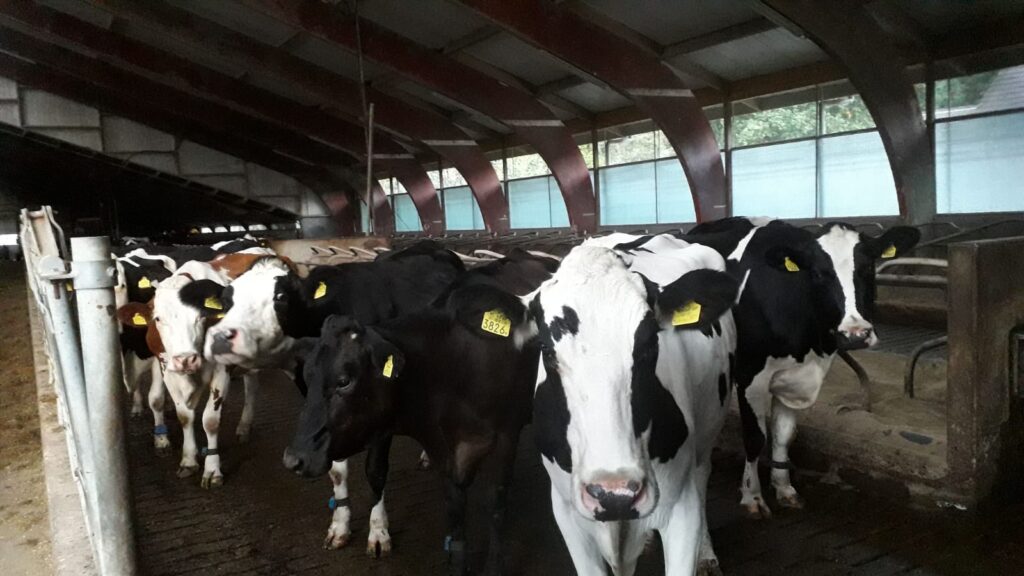
Dairy farmer Johan de Groot
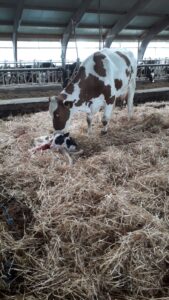
Dairy farmer Johan de Groot
No more failures
Since Johan uses the product, no calves die of diarrhea anymore. “It really had an immediate effect. I’ve been using the product for about a year now and it pays for itself. I don’t have any failures anymore. Moreover, the calves are more energetic and their growth remains better.” The calves get the product from day 1, up to about 11 days. “That takes them through the critical phase, and after that I stop adding it.”
For his dairy cows, Johan doesn’t use the product yet, despite the good results he has with his calves. “I’m still waiting for the moment when I can test it with the dairy cattle,” the dairy farmer laughs. He will continue to use the product with the calves in any case. “It’s good. I would certainly recommend it to other farmers whose calves suffer from diarrhea.”
What is PrimeHumic?
PrimeHumic contains 52% humic acid and 12% fulvic acid. These organic substances are crucial for maintaining good health in animals. The weight and size of their molecules are so small that they can travel from cell to cell. Humic acid acts as a binder and fulvic acid as a transporter, improving the absorption of nutriens and helping to maintain cell balance. In addition, humic acid and fulvic acid transport heavy metals out of the cells, resulting in improved disease resistance and vitality. In calves, this is reflected in better intestinal health, fewer intestinal infections, better feed conversion and a healthier skin and coat.


